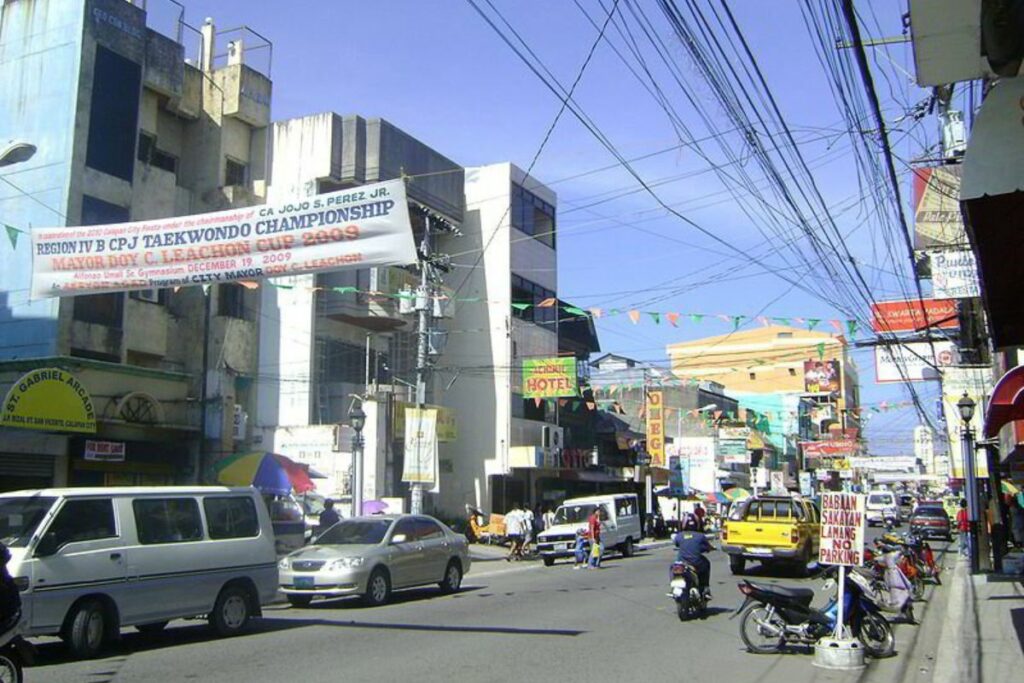Lessons to Learn in the Philippines: Why Childhood Wisdom Matters More Than Ever
Remember those important life lessons you picked up as a kid? In the Philippines and much of Asia, those lessons matter even more.
In many Western countries, life feels safer. There are systems in place, like the police and government services, that help make daily life predictable and secure. You trust that most people will follow the rules and that someone is looking out for you.
Not here.
In the Philippines, things work a bit differently. While the country is warm, welcoming, and beautiful, being self-reliant, having street smarts, and using common sense are essential for daily life.
So take a moment to revisit these 8 lessons you learned as a kid. Following them could help protect your health, safety, and wallet.
1. Look both ways before crossing the road
Traffic in the Philippines can be unpredictable. Vehicles often travel the wrong way on one-way streets or drive on the opposite side of the road. Many drivers won’t slow down or even see you. Never assume traffic will follow the rules; always check both directions, even on one-way streets.
This also holds true for sidewalks. Believe it or not, motorcycles often use sidewalks as shortcuts, sometimes at full speed. Stay alert and don’t let your guard down.
(Ask me how I know…)

2. Don't talk to strangers (or be VERY careful if you do)
In the Philippines, people are often warm, smile a lot, and are ready to help. This friendliness makes the country inviting. However, keep in mind that they are still strangers. Their welcoming behavior can make them seem harmless, and some might even feel like “instant friends,” but don’t mistake friendliness for trustworthiness.
Be especially careful of unsolicited advice or overly eager offers to help you with directions, travel plans, accommodations, or anything related to money or personal information. If you need help, you should choose whom to approach, not the other way around.
A good rule is this: if someone approaches you offering help without you asking, they probably have their own interests in mind, not yours. Be polite, but be aware.
3. Do not take "candy" from a stranger
No matter how harmless it appears, never accept anything from someone you don’t know or didn’t ask for yourself. That free pack of cigarettes might have drugs in it, a “friendly” drink could be spiked, or you might face a high charge for something you never wanted.
When you’re unsure, politely decline and walk away. It’s better to be careful than to be caught off guard.
4. Do not give money to strangers
In the Philippines, it’s common to see people asking for money, especially in busy or tourist areas. But be cautious: once you give to one person, others will quickly follow. Before you know it, you might find yourself surrounded by outstretched hands. Many people are hoping for a quick peso.
Here’s a tougher truth: giving handouts doesn’t always help. I once gave a bag of nice clothes to a family I had seen living on the streets for years. They never wore them because wearing decent clothes would hurt their ability to beg. Later, I found out they actually had a home nearby. They dressed in worn-out clothes on purpose to seem more in need. For them, begging was a job, not a desperate last resort.
It’s important to be compassionate, but also to be smart. If you really want to help, look for trustworthy local charities or organizations that provide real, sustainable support.
5. If you can't say something nice, say nothing
In the Philippines, raising your voice, showing anger, or acting aggressively is not just discouraged. It can lead to serious consequences. Filipinos value respect, humility, and harmony in social interactions. If you lose your temper or seem confrontational, whatever issue you are trying to resolve will likely come to a quick stop.
Instead of helping your case, you might get the opposite response. People may withdraw, become uncooperative, or stop engaging altogether.
If you want to make progress, stay calm, speak respectfully, and approach situations with patience. In Filipino culture, kindness and calmness are much more effective than force.
6. Mind your manners
Always remember, you are a guest in the Philippines. With that comes the responsibility to respect local laws and customs. Locals may sometimes bend the rules, but foreigners face a different and often stricter standard.
If you get caught breaking a rule, don’t expect the same leniency locals receive. I once got stopped for riding a motorcycle without a helmet while local riders zoomed past without one. When I asked why they weren’t stopped, the traffic enforcer simply said, “They don’t have money to pay the fine.”
Fair or not, that’s the reality. As a foreigner, you are more visible, more accountable, and more likely to face consequences. So, know the rules and follow them.
7. If something sounds too good to be true, it probably is
It’s surprising how many educated, business-savvy foreigners who have trained in the West arrive in the Philippines and start making deals on a handshake or just verbal promises. That’s a big mistake.
Scams are common, and street deals that seem too good to be true usually are. Don’t be misled by “Antique American silver coins” or “Rolex” watches sold on the street. A friend of mine was once offered a 10-kilo bag of so-called collector coins, each in its own plastic case, along with a Rolex watch as collateral for a loan. He had them evaluated by professionals. Every single item was fake.
The same applies to land titles and real estate deals. Just because you see an official-looking document doesn’t mean it’s real. The title could belong to a completely different property. It could be fake, or it might already be pledged as collateral on another loan.
Always do your homework. Get everything in writing. Hire a trusted local lawyer. And remember, if something seems too good to be true, it probably is.
8. Haste makes waste
In the Philippines, showing urgency can quickly lead to costly mistakes. If you’re in a hurry or facing an emergency, others may see it as a chance to profit from your desperation.
The more you show your need for something, the more vulnerable you become. Speed has its price, and unless there’s a benefit for them, there is little reason for others to act quickly.
Local people often have a different sense of time. They are in no rush and don’t feel pressured by your schedule. So, stay calm, manage expectations, and remember that patience isn’t just a virtue here; it’s a vital skill for survival.
Those are the 8 lessons to learn in the Philippines.
Childhood values, such as respect, caution, patience, and common sense, are very important in the Philippines. Keep them close. They aren’t just helpful, they’re necessary.
If this is your first visit to the Philippines and you need advice, visit BADLADZ Beach Resort in Puerto Galera. I’ll be happy to help you!
Cheers,
Sean



